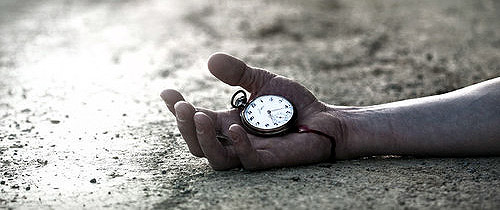
Hair’s Tip In Autumn
Under heaven there is nothing greater
than the tip of an autumn down,
and the Thâi mountain is small.
There is no one more long lived
than a child which dies prematurely,
and Phang Tsû did not live out his time.
~*~
Heaven, Earth, and I
were produced together,
and all things and I are one.
Since they are one,
can there be speech about them?
But since they are spoken of as one,
must there not be room for speech?
One and Speech are two; two and one are three.
Going on from this (in our enumeration),
the most skillful reckoner cannot reach (the end of the necessary numbers),
and how much less can ordinary people do so!
Therefore from nonexistence we proceed to existence
till we arrive at three; proceeding from existence to existence,
to how many should we reach?
Let us abjure such procedure, and simply rest here.
Zhuangzi, by Zhuang Zhou, trans. James Legge, The Adjustment of Controversies
The segment sets the table with a short list of absurdities. The extremity of a hair, the tip “in autumn” is asserted as “great.” Next a mountain is indicated to be small. The tip-of-a-hair and a mountain collapses the distinction between small and great. Then a child that dies is said to have had a long life as anyone. Compare with Pengzu (I assume an adult) said to have died prematurely. Either such comparisons are absurd on their face, not worth a moment of consideration. Zhuang Zhou, on the other hand, is saying that our ordinary manner of describing this, that and the other are relative to an angle of view. The tip of a hair is tiny by comparison to a man, but enormous by comparison to a molecule. The duration of time isn’t an absolute measurement either. I have known of very aged adults that believed their life “too short.”
What are the odds that you and I can resist being duped by language? Apparently they are long odds indeed… I know numbers of Americans who feel hatred for others who they’ve never met. Hear a spite filled message long enough, and the drumbeat will teach you to hate. I realize that if asked, they’d say that they “don’t mean to hate anyone.” Nevertheless clearly they do.
Zhuang Zhou lays his cards on the table. You and I are stardust. We are emissions of the cosmos, a feature of nature. A language enabled mammal once belonging to a star. I am one with all things. Still, to make the statement is to impose a distinction, I’ve made a clearing for speech! So there are now two, a cosmos and a cosmos plus a description of it. 1+2=3. With speech how many distinctions are possible? An infinite number!
Just stop it shouts Zhuang Zhou. Another translation of the last line admonishing us to seek repose in lieu of a full-throttle wrangling of external reality with words:
Let us leave things to take their own course.
The more I consider events roiling around us, I am inclined to believe things will inevitably take their course.
2 thoughts on “Hair’s Tip In Autumn”
Take their course!
As was noted in the words of Zhuang Zhoa, if we are to take him seriously, are not all things relative, as you pointed out as well. My life span is a blip compared to the age of a 2,000 year old Redwood but the 24 hours of a fruit fly’s life is just right for its purpose. The culprit here is consciousness. Without a sense of the possible, without a notion of our relativity to others, we would not be concerned with living longer than that Redwood. And I can guarantee that the Redwood doesn’t give a flying f#*^ about its age relative to mine.
My point here is that conscientiousness is a double edged sword. It allows us to have the dialogues such as this and to revel in unwinding of the secrets of universe, yet also makes us hyper aware of our mortality.
Hope this makes sense.
Good sense indeed.
Consciousness, the double edged sword. Also, you cannot pick up one end of the stick, without picking up the other.